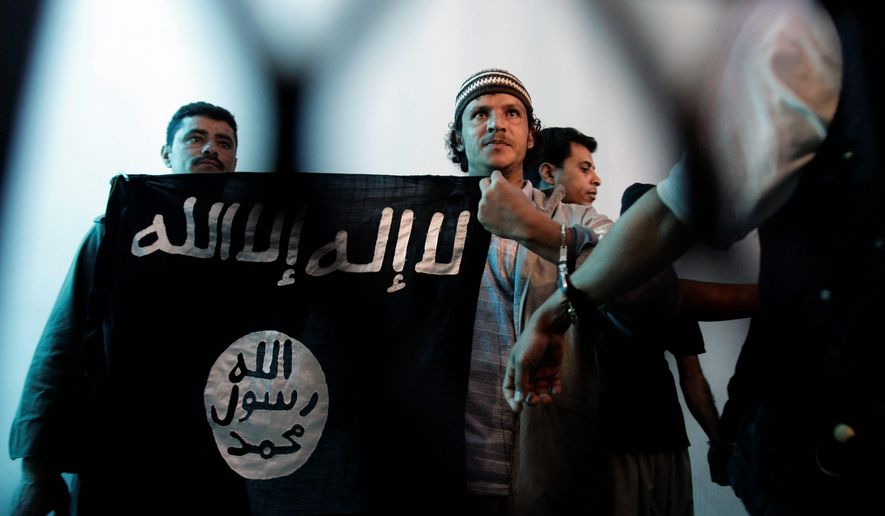Islamic State terrorists have doubled in numbers across Yemen during the last year, the Pentagon said Wednesday, notwithstanding successful efforts to diminish their presence in Iraq and Syria.
The Islamic State’s apparent expansion was noted in a statement released by the U.S. Department of Defense concerning its counterterrorism efforts abroad, including previously undisclosed details involving its operations in Yemen, an Arab nation south of Saudi Arabia.
“U.S. forces have conducted multiple ground operations and more than 120 strikes in 2017 to remove key leaders and disrupt the ability of al Qaeda in the Arabian Peninsula (AQAP) and ISIS-Yemen to use ungoverned spaces in Yemen as a hub for terrorist recruiting, training and base of operations to export terror worldwide,” said U.S. Central Command, referring to the Islamic State’s Yemeni branch.
“AQAP is one of the terrorist groups most committed to and capable of conducting attacks in America, as assessed by the intelligence and defense communities, while intelligence estimates indicate that ISIS-Y has doubled in size over the past year,” CentCom said.
The statement marked the first time the U.S. acknowledged conducting multiple ground operations in Yemen and indicated a five-fold increase over 2016 in terms of airstrikes, Military.com reported.
The Pentagon didn’t disclose exactly how many jihadis have joined ISIS in Yemen, but its swelling in size comes amid claims that the group’s been decimated throughout its former strongholds, Iraq and Syria. An ongoing civil war in Yemen has given terrorists a reason to wrestle for power, however, and a CentCom spokesman said that U.S. expanded in Yemeni operations this past October to prevent ISIS from “filling the vacuum.”
President Trump campaigned on eradicating ISIS, and he “has made it abundantly clear” that terrorist sites in Yemen should be targeted, CentCom spokesman Lt. Col. Earl Brown told Military.com.
“U.S. forces have enabled regional counterterrorism partners to regain territory from these terrorists - forcing them to spend more time on survival,” he said. “These operations have helped to illuminate terrorist networks, making intelligence-gathering, subsequent targeting and follow-on operations increasingly productive and effective.”
• Andrew Blake can be reached at ablake@washingtontimes.com.




Please read our comment policy before commenting.